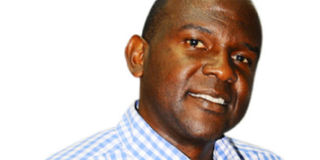To Baganda who want Baganda to elect a Muganda president

Recently, Uganda’s oldest political party, the Democratic Party (DP), held what they called a reconciliation meeting. This meeting was to call back all the prodigal sons and daughters and all those who saw no hope in the party and sought refuge in other parties.
One of the speakers at the meeting, Dr Abed Bwanika, the president of People’s Development Party, highlighted the fact that Baganda have not taken advantage of their big numbers to hold sway in Uganda’s politics. They have played a peripheral role as followers of those people from other regions vying for power.
Bwanika was especially vocal/critical of the support Baganda have lent former FDC presidential candidate Kizza Besigye on four occasions, all of which ended in failure. Bwanika’s comments point in the direction that for Baganda to make tangible and remarkable progress, they should start thinking about standing behind one of their own to lead Uganda.
The enduring argument being the political history of Uganda, which shows that the distribution of national resources favours the tribe of a president of the republic.
Since the president has the greatest say and hold on national resources, he decides how these are distributed. Practice shows that like charity, he usually begins at home. Whenever Uganda has elections, politicians and many Baganda have spoken out in great frustration about Baganda ignoring ‘their own in favour of other people.’ They claim that these very Baganda then blame Baganda leaders and politicians for leaving them to wallow in poverty and all the hardships that life throws at them.
In his essay, Going to the People; Amílcar Cabral’s Materialist Theory and Practice of Culture and Ethnicity, Amílcar Lopes da Costa Cabral says, “Always bear in mind that people are not fighting for ideas, for the things in anyone’s head. They are fighting to win material benefits so as to live better and in peace, to see their lives go forward, to guarantee the future of their children.”
He then adds that “it is not the existence of a race and ethnic group or anything of the kind that define the behaviour of a human aggregate. No, it is the social environment and the problems arising from the reactions to this environment and the reactions of the human beings in question. All this defines the behaviour of the human aggregate.”
For so many years, I have heard Baganda politicians and leaders talk about its glory born of the great ancient Kiganda history and culture as a rallying point.
Many Baganda, especially at social functions graced by Kabaka Ronald Muwenda Mutebi II, will respond positively to this discourse by turning out in large numbers. Yet in making political choices (where the Kabaka takes no sides), the people react almost negatively to it.
It is about Cabral’s message on material benefits. Political leadership, especially the type that borrows patronage from ethnicity, is built on foundations where the masses are financially secure or make choices of leaders based on calculations that present a promise of future economic and material security.
Especially after the 1966 crisis, (that ended Buganda Kingdom with a reasonable amount of political clout,) the hope for national leadership from Uganda dimmed. Political persecution made many lose the appetite for politics. The period of Idi Amin from 1971-1979, saw many either lying low or fleeing to exile.
The ‘defining moment’ for political leadership from Buganda was the 1981-86 bush war that brought the NRM to power. It destroyed agriculture, the main source of income and prosperity in Buganda. The cooperatives that helped with good pricing and value addition followed suit. Many Baganda were left holding barely productive land as their last valuable asset. A lot has since been sold off to educate children whose chance of getting gainful employment is very minimal.
Many have taken to living from hand to mouth - riding boda bodas, taking to sports betting, being in disguised unemployment in the urban areas or going overseas to sell their labour. Such a group form a weak base or foundation because they will barely find the financial resources to support one of their own even if they have good ideas.
On the other hand, the business class that may pool resources to support a serious Muganda candidate have a debt of loyalty to those in power and risk losing that privilege if they rise to offer leadership or support anyone other than the one who offered them the opportunity to prosper and has the tools to reverse that prosperity. So you have poor leaders, who can’t support their people and poor people who can’t support their leaders.
‘Realistically’ Baganda are left to choose from those with presumably good money and clout like Besigye and Amama Mbabazi, who ‘fell out with their brothers’ after hitherto using their opportunities well to have unshakable financial security that can take the shocks of economic sabotage by those in government.
They have the added advantage if they have a military or militant background for they offer the hope that they may one day mobilise people to counter the NRM, whose greatest strength is its claim to mastering violence as a political tool.
Mr Sengoba is a commentator on political and social
issues. [email protected]
Twitter: @nsengoba




